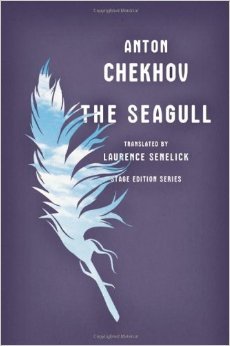Act I — The Seagull
byAct I begins on the expansive grounds of Sorin’s estate, where nature’s beauty is momentarily obscured by a makeshift stage constructed for an evening performance. The lake behind the platform remains hidden, a subtle metaphor for the concealed emotions and quiet frustrations among the characters. Masha and Medviedenko arrive first, their conversation revealing mismatched affections and differing outlooks on life. Medviedenko speaks earnestly about his love, equating happiness with companionship, while Masha confesses her emotional detachment, weighed down by a life that feels devoid of joy. Her sadness clings not to poverty, but to emotional stagnation. Their dynamic sets the tone—earnest love meets quiet indifference, a recurring tension throughout the act.
Sorin and Treplieff soon enter, engaging in talk that mixes nostalgia with artistic ambition. Sorin, reflective and resigned, voices his discomfort with rural life and his regrets about unseized chances. Treplieff, younger and restless, is consumed by anticipation for the performance he’s about to stage. He’s both excited and anxious—not just about the play itself, but about Nina’s role in it and the looming presence of his mother, Arkadina. A divide emerges between tradition and experimentation: Arkadina loves established theater, while Treplieff craves a new language of expression. His frustrations echo beyond art; they are rooted in his emotional need for recognition, especially from his mother, who undermines his work without understanding it. Treplieff longs to be seen as more than a curious child trying to impress.
As the preparations continue, the emotional atmosphere tightens. Nina’s entrance is quiet but charged with shared expectation. She is as excited by the performance as Treplieff, though her admiration for the art seems more instinctive than ideological. They speak of love and ambition, barely concealing their feelings beneath casual remarks. Treplieff views Nina not just as a muse but as the ideal audience—someone who might understand the intent behind his strange, symbolic theater. The play he’s created places Nina as a solitary voice, trapped in a world destroyed, speaking to the void. It reflects his internal world, a landscape where emotion and meaning often go unheard. Nina, though flattered, is unprepared for the weight of what’s being asked of her. Yet she follows him with hope.
The arrival of Arkadina and Trigorin interrupts the budding artistic mood with a sudden shift in tone. Their entrance brings prestige but also critique. Arkadina, vivacious and theatrical, dominates the space effortlessly, her charm mixed with dismissiveness. Trigorin, understated yet clearly admired, listens more than he speaks, drawing attention without seeking it. As the play begins, it is met with confused glances and whispered commentary. Nina delivers her monologue, ethereal and strange, while the audience struggles to relate. Treplieff’s attempt to present a new artistic form clashes with the comfortable expectations of his mother’s social circle. Laughter from the audience and Arkadina’s open disapproval unravel the fragile tension, reducing Treplieff’s vision to a joke.
The resulting conflict, especially between Treplieff and Arkadina, exposes wounds deeper than disagreement about art. She belittles his efforts not just because she dislikes them, but because they threaten her sense of authority. Treplieff, already insecure, erupts in anger. His outburst is less about the ruined play and more about being ignored, about feeling that everything he values is dismissed by those closest to him. Trigorin remains passive, his presence alone casting a long shadow over Treplieff’s ambitions. Fame, it seems, offers recognition but no resolution.
The act ends in a fracture. The performance halts abruptly, and so does Treplieff’s fragile belief in being understood. Nina’s admiration remains, but it is unclear whether it’s for him or for the luminous world represented by Trigorin. Treplieff leaves feeling exposed and defeated. The failed play mirrors his emotional state—unfinished, misread, and disrupted. In Act I, every character reveals themselves not through declaration but through reaction: Masha’s quiet despair, Treplieff’s explosive longing, Arkadina’s biting superiority, and Nina’s dreamy wonder. The stage may be temporary, but the conflicts it hosts are lasting. Beneath the light of a country evening, the seeds of emotional ruin are gently, irrevocably sown.

